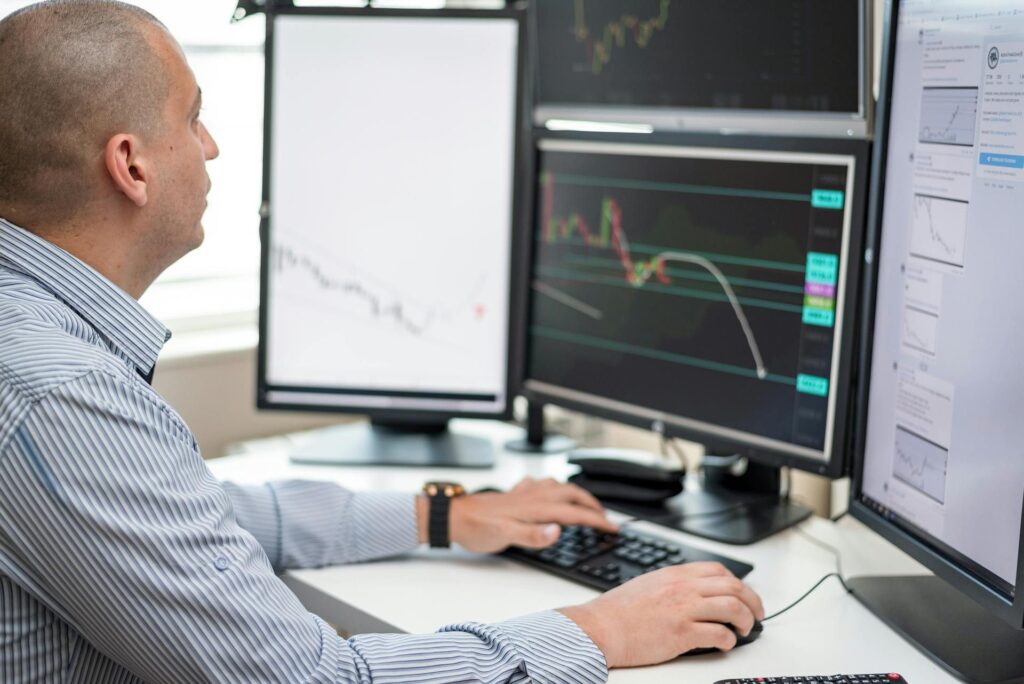
Pexels/AlphaTradeZone
Ramadan bourse activity remains strong
Greater international interest
Growth in asset management
Trading on Saudi Arabia’s bourse has changed little this Ramadan as the growing influence of institutional and professional traders offsets the impact of a decline in retail investor activity.
Historically, Gulf nationals have been the dominant force on the region’s stock markets. Individuals often meet at the bourses to trade and socialise. Such habits would usually fall off during the month of fasting, causing stock market volumes to tumble.
Yet AGBI analysis of Saudi bourse data from this decade shows that trading activity has increasingly remained strong in Ramadan, when observing Muslims cannot eat or drink from sunrise to sunset.
From 2020 to 2025, 364 million shares changed hands daily on average during Ramadan. That is 3 percent higher than in the month preceding Ramadan.
“There’s a structural change in Gulf markets, especially Saudi Arabia, as they become a bigger part of the global emerging market index,” says Sanat Sachar, a portfolio manager at wealth management company Azimut Middle East in Dubai.
Until mid-2015, foreigners were restricted to owning Saudi stocks only indirectly. The regulator lifted the theoretical maximum foreign ownership limit to 49 percent in 2019 ahead of the country joining the MSCI and FTSE emerging markets indexes in a phased process to 2020.
Saudi Arabia’s weighting on the MSCI index has risen steadily as a result and is now 4.4 percent, up from 2.7 percent in late 2020.
“There are a lot more global institutional investors looking at the market and [in] their activity it doesn’t make a big difference in terms of whether it’s Ramadan or not,” says Sachar.
In December 2024, Saudi retail investors accounted for 31 percent of bourse turnover, down from 39 percent five years earlier, for example. The Ramadan effect remains noticeable among this investor group, with its share of turnover just 26 percent in the trading week ending March 20.
Institutions have increasingly filled this void. Sachar highlights a second, parallel trend that has diminished the Ramadan effect on trading: Saudi Arabia’s growing asset management industry.
The sector’s assets under management have doubled this decade to SAR1 trillion ($266 billion), according to a report by Saudi financial news portal Argaam.
“Professional investors don’t get much influenced by Ramadan,” says Sachar.
More consistency in trading volumes during Ramadan has eased market volatility; when trading volumes dwindle, investors wanting to sell tend to do so at a lower price to find a buyer, which causes wider price swings, Sachar says.
The diminishing Ramadan effect on trading activity is partly also a result of the holy month starting 10 to 12 days earlier each year.
Ramadan this year began on February 28, which is peak season in bourse activity, whereas from 2009 to 2019 part or all of Ramadan fell during the summer trading lull months of June to August inclusive.



